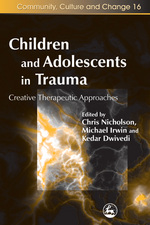Jude Welton on Asperger Syndrome, metaphors and literal thinking
“Since children with Asperger Syndrome are literal thinkers, some parents and professionals try to avoid metaphorical language, so as not to confuse or distress – but this can’t prepare the child for the real world. And non-literal language can be fun! If metaphors are explained and explored in a relaxed, playful way, they can enrich children’s understanding of language and the world, and help them to use language in a less formal and more ‘natural’ sounding way.”








